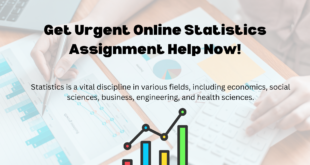Data from Statista indicates that AI-driven personalized book recommendations have led to a 15% increase in sales for publishers who integrated these systems into their eCommerce platforms. 75% of readers are more likely to purchase a book based on AI-generated recommendations.
The publishing industry stands at an inflection point due to the increasing role of artificial intelligence (AI). Technology continues to revolutionize various fields, and AI has had an immense effect on publishing. Both authors and publishers alike are harnessing its power for mundane tasks automation, creativity enhancement, and operational efficiencies, yet its adoption also presents unique challenges that need addressing; in this post, we’ll look into both opportunities that AI brings for publishers as well as any obstacles they must overcome before fully adopting it into their workflows.
Defining AI and Its Role in Publishing
In simpler terms, artificial intelligence (AI) refers to technologies that use computers to mimic human behavior by simulating activities such as problem-solving, learning, and decision-making. In publishing, this technology is used to streamline all facets of content production, including editing, personalization, marketing, and so on.
AI tools offer authors, publishers, and self publishing services a powerful resource for creating faster content while personalizing reader experiences and making data-driven decisions. From providing suggestions for improving existing work or book recommendations for readers to forecasting market trends, AI has quickly become indispensable to the publishing ecosystem.
Opportunities in AI-Powered Publishing
Artificial intelligence offers numerous opportunities for authors, publishers, and readers alike in publishing. From creating engaging content to improving reader engagement rates – AI’s presence will revolutionize publishing processes! Here are several advantages AI brings with it.
Enhancing Content Creation and Editing
AI’s role in content creation and editing has already been demonstrated. AI-powered grammar checkers and writing assistants assist authors in honing writing skills by offering suggestions about sentence structures, grammar structures, tone of voice, style, and tone of language use. These features allow authors to refine their work before being submitted for editorial consideration by editors.
“AI has empowered writers to focus on the creative aspects of writing while letting the technology handle the technicalities,” says Jane Roberts, a leading editor at a self publishing services company.
Authors using AI-powered editing tools can produce polished drafts faster, thereby making their writing processes more efficient.
AI can also speed up the editing process by automatically flagging inconsistencies and errors, freeing editors to focus on larger issues like story flow and character development instead of minor grammar-based errors.
Improving Reader Engagement through Personalization
AI’s capacity for data analysis enables publishers to utilize it to increase reader engagement through personalization. AI studies user behavior to provide personalized recommendations tailored specifically for each reader based on preferences, reading history, and browsing behavior—helping readers discover titles relevant to them more quickly than before!
AI provides self-publishers with a direct path to improving marketing campaigns by targeting specific reader demographics with tailored content suggestions that increase reader engagement and satisfaction. This ensures that readers feel valued and understood by authors and publishing services alike.
AI can improve content presentation. For instance, AI-powered platforms can deliver different versions of content – audiobook versions, for example – depending on each reader’s tastes and preferences.
Utilizing Data for Smarter Decision-Making
Artificial intelligence tools have the power to analyze large volumes of information for smarter decision-making. Leveraging machine learning techniques, AI can identify market trends, forecast reader preferences, and optimize pricing strategies—invaluable assets in an increasingly competitive publishing industry. These insights may prove particularly advantageous to publishers and self publishing services seeking an edge against the competition.
AI-powered analytics provide publishers with invaluable data about book performance, genre preferences, and reader preferences that can inform content production, marketing efforts, and book decisions – mitigating risk while increasing chances of market success and decreasing potential risks in decision-making processes.
Boosting Operational Efficiency in Publishing
AI excels at automating repetitive tasks that would otherwise take up precious time and resources, like content formatting, metadata tagging, and customer service inquiries. This frees publishing teams up to focus more on higher-level tasks such as content production, strategic planning, or market research.
AI-enhanced tools can also assist publishers in optimizing supply chain logistics and inventory management to ensure books are printed and distributed efficiently – thus saving costs while being more agile in responding to market needs.
Increasing Accessibility in Publishing
AI’s impact on increasing accessibility cannot be overstated in publishing. By employing tools such as speech-to-text technology, automatic translation, and audiobooks, it makes content available to a greater number of individuals—especially individuals living with disabilities who may require text-to-speech capabilities, allowing more readers to enjoy books in various formats.
AI-driven translation services are helping self publishing services reach global markets more easily by offering faster and more accurate translations. This gives authors more chances to expand their readership internationally while transcending barriers associated with language and culture.
Challenges of AI in Publishing
Though AI integration in publishing presents many advantages, its implementation does not come without obstacles and challenges that need to be navigated to ensure its responsible and ethical implementation in content creation and distribution.
Maintaining Quality and Creativity in Content
While AI can assist with tasks like editing and grammar correction, it cannot match human authors in terms of creativity and emotional depth when writing their works. Over-reliance could result in content that lacks originality or feels repetitive if left to its own devices for too long.
Addressing Ethical Issues and Bias in AI
One of the greatest obstacles facing AI technology today is bias. AI systems rely on data for training purposes, and any improperly generated recommendations could perpetuate harmful stereotypes or lead to harmful content-creation processes. Publishers using AI tools should remain mindful of these concerns to produce inclusive and bias-free content creation processes.
“AI can inadvertently reinforce biases if not properly managed,” warns tech expert Rachel Lee. To mitigate this risk, AI developers and publishers must work together to ensure that ethical standards are upheld throughout the process.
Ensuring Data Privacy and Security
With AI tools relying heavily on personal information for operation, data privacy, and security become major concerns for publishers. They should adhere to regulations like GDPR in taking measures to secure readers’ data, as failing to do so could have serious legal repercussions and damage reader trust.
Navigating Copyright and Ownership of AI-Generated Content
With AI increasingly capable of creating its content, legal questions have arisen about who should own any works created through AI systems. Whose responsibility lies it? The publisher, the Author, or the AI developers themselves? Such complex legalities need to be carefully addressed to guarantee fair ownership of AI works created from them.
Overcoming the Risk of Over-Dependence on AI
AI should serve to complement human skills rather than replace them, rather than take over all content creation or editorial decisions on its own. Relying too heavily on artificial intelligence for content production or editorial decisions risks losing authenticity and creativity altogether if overused; publishers need to strike a balance between taking advantage of AI tools and keeping humans involved as much as possible.
Navigating the Future of AI in Publishing
AI holds great promise for publishing, but integration must managed carefully to maximize its benefits. Publishers must combine technological innovations with human creativity and oversight to maximize AI’s benefits; such an alliance ensures AI processes enhance rather than degrade content quality.
Integrating AI into the Publishing Workflow
Publishers will need to carefully integrate artificial intelligence tools into their existing workflows. From manuscript editing and marketing to production and sales, AI should strategically deploy at every step in the publishing process to increase efficiency while still upholding creative control.
Striking the Right Balance Between Technology and Human Creativity
AI should serve as an augmentative resource, not as an outright replacement for human creativity. Publishers and authors should work with AI to enhance their capabilities rather than replace human talent altogether. Striking this delicate equilibrium will allow authors to craft compelling stories while connecting more deeply with readers.
Exploring New Business Models and Revenue Streams
AI opens numerous doors for publishers looking for novel revenue models and streams, whether through subscription-based services, personalized content offerings, or global distribution channels. AI allows book publishers to experiment with innovative approaches to reaching readers while monetizing content.
Conclusion
AI is already shaping the future of publishing in many ways. By harnessing its power, publishers and self publishing services can leverage AI to enhance content production, operational efficiencies, and improved reader engagement. However, there may certain challenges related to maintaining creativity, ethical concerns, and data privacy issues that should consider when adopting AI technologies.
Yet, with careful application in the publishing sector and striking the appropriate balance with human input, this new era offers exciting possibilities. Book writing and publishing companies can play a pivotal role in navigating these challenges while embracing AI’s potential to innovate and streamline the publishing process.
 Our Gateway to Insightful Blogging Exploring Ideas, Sharing Knowledge, Inspiring Minds
Our Gateway to Insightful Blogging Exploring Ideas, Sharing Knowledge, Inspiring Minds



